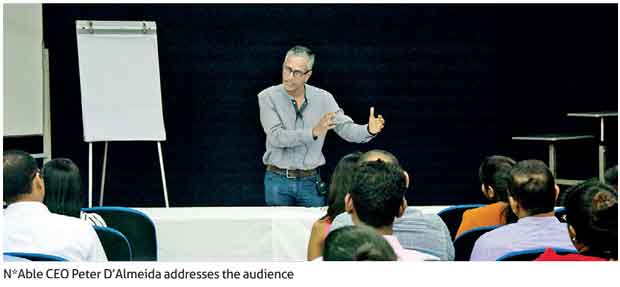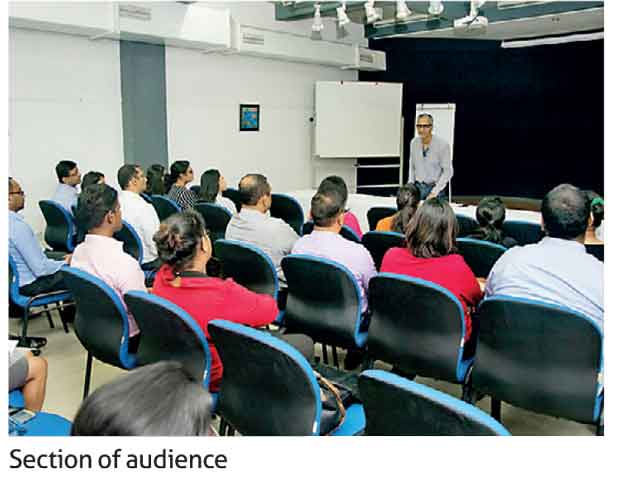22 Dec 2017 - {{hitsCtrl.values.hits}}


One of Sri Lanka’s most prominent technology services companies – N*Able – hosted the recently held HRTalk, organised by SLASSCOM, with CEO Peter D’Almeida addressing the audience.
The forum – organised for the HR professionals of member organisations, zoned in on the critical role HR plays in today’s knowledge industry, not only as a traditional function but also as a business partner.
In recent times, HR has grown and developed to become a standard business function, although there is much to be done in terms of using HR to drive business growth. As opposed to mere operational matters, HR has more of an active role to play in strategy as demonstrated by D’Almeida, including motivating and mobilising staff within a company and initiating a few, purposeful, high impact actions.
As D’Almeida pointed out in his speech, ‘people companies’ in particular need to embody HR, not simply have a division segregated under the name. Merely establishing a department and personnel to run it is not all there is to it. To quote, the concept is ‘counter-intuitive; it defies logic’. Seeing as how a people company has got everything to do with people, it only makes sense that people management is a top priority, not just as protocol but also integrated deeply into the heart of the business.
Peter also stressed on the importance of focusing on the ‘big picture’ in order to re-centre oneself for better company performance. For instance, it is necessary for HR to facilitate the leaders within companies to take time to interact with their team members, to resolve discord and confusion before chasing profit targets. Interacting with and talking to the team regularly allows you to have a personal insight into the health of your human capital within the company, perhaps even diffusing any potentially disruptive situations before they have a chance to erupt.
HR also needs to lead the conversation with the shareholders and employees, understand their expectations to align talent strategy to the company’s goals. This was illustrated in the example of Juniper Networks, where a potential risk was mitigated because the company decided to obtain input from all 900 employees working with the customer in question. This means that HR would have to constantly look at the big picture and align its efforts accordingly, instead of a conducting a series of events that would involve more ‘check-box ticking’ and being an operational executor for company trips, engagement activities, leadership programmes, etc; instead, it needs to focus on initiatives that would create the biggest impact.
Perhaps the next most important thing is to change HR’s approach to problem-solving. Common practice is a knee-jerk reaction, solving issues with just past experiences. D’Almeida’s suggestion was to love the problem, embrace the problem, study it, dissect it and when you solve it, look at how you can prevent it from rearing its head again in the near or distant future. This is invaluable not just in the short-term but also long-term.
As a company which was founded in 2008 with just 13 people, N-Able has come a long way, growing to a 180-strong team to-date. This fact prompted Peter to take the company as an example in the importance of sound HR practices, drawing on its culture of openness through being receptive, which is invaluable when handling large teams. He went onto state that they make it a point to invite ideas from HR to mitigate matters, before taking them to the head office.
In his closing remarks, D’Almeida concluded that this is how HR remains to be a very relevant part of the business. As businesses change with their own actions disrupting themselves especially in the technology sector, we should all aim to
be relevant.
26 Dec 2024 28 minute ago
26 Dec 2024 53 minute ago
26 Dec 2024 55 minute ago
26 Dec 2024 2 hours ago
26 Dec 2024 2 hours ago